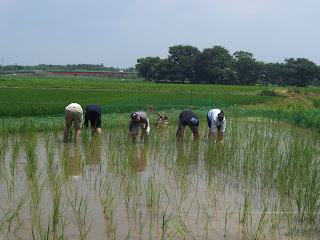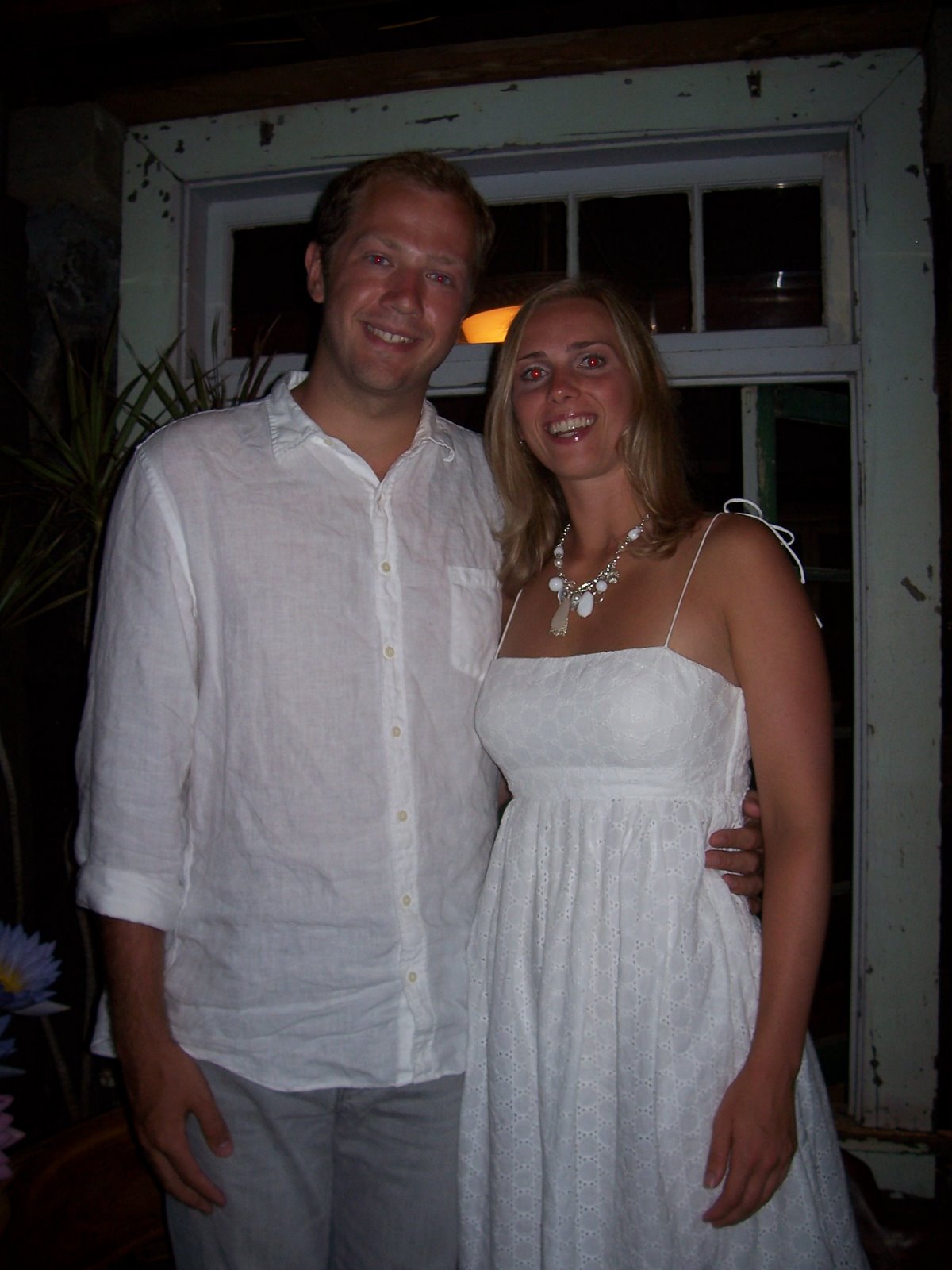I just spent a few hours this afternoon listening to four women talk about their relationships with their husbands. Two of the women were Japanese, married to Japanese men; one woman was American, married to an American; and one woman was from Singapore, married to a Japanese man. They are all members of the women’s society, and were working here at the church today on various tasks.
The conversation started with Lily, the woman from Singapore married to a Japanese man. She asked how long James and I had been married, and then found out we had known each other since we were 14. Lily said, “Oh, that is very good to marry somebody from your youth. That way you know that your interests will be similar into your old age.” She went on to explain that she and her husband had no more similar interests, and that the only common interest they had shared for a long time was their only child. Their daughter just graduated from college, and has been out of the house for four years now. Without their daughter around, Lily said that she and her husband rarely talked and did not do or share anything together. Sometimes dinner, but that is about it.
“My husband is so different now,” said Lily. “When we were in Singapore, he used to act like a normal man and hold my hand and ask me questions and take me out to dinner. Then we got back to Japan and he started acting like a pure Japanese man, like his own culture had gobbled him back up.” “What do you mean?” I asked her. “Well,” she said, “he doesn’t want to hold my hand or let me scratch his back or have any sign of our love in public, or even at home. And he just doesn’t care to do anything with me. He has his life, and I have mine. The only words I say to him a few time a week, ‘what do you want for dinner?’”
“So he doesn’t like PDA, huh?” I joked. Blank stares followed. “It means Public Display of Affection. He doesn’t like to show affection in public.”
“Ah, yes!” laughed Merumi-san. “This is Japanese men. When I was young and dating my now husband, we would be walking down the street and other young men would ask me out because my husband had to walk up in front of me.”
“Why are Japanese men like this?!?” she asked the two other Japanese women in the room. “I was so sad when we moved to Japan from Singapore, because my husband was a different person. Then I realized that it is just his culture.”
“Ahh….” said Merumi-san. “Don’t feed a fish that you have already caught.”
“What?” asked Lily, needing further clarification.
“I mean, a man doesn’t need to coddle a wife because he already has her.” The other Japanese woman in the group, Kaori-san, piped up: “Yes, this is a very common saying in Japan. Don’t feed a fish that has already been caught. The husband does not need to spend time with his wife, or his children, because his only concern is to have a job to pay for their needs. In his spare time, he can hunt for new fish.”
“Uh, oh…” said the women from America, “in the US if a man starts catching other fish, the woman throws him out. We don’t put up with other fish.”
“Yes, well,” said Merumi-san, “this is how it has been for a long time in Japan.”
“But things are changing for the newer generations,” said Kaori-san. “The men are helping more with the family life, and thinking more about the wives.”
“Yes, I see this is true,” said Lily. “But the change is not all for the better. The men are becoming weaker, they do not work as hard. And many of them don’t care to settle down or have a family. It is true that the women are becoming stronger, but even stronger than the men.”
“That is right!” Merumi-san quickly agreed. “Our husbands and their father’s generation built up Japan so quickly after WWII, because they worked so hard. And if there was a war now, it would take the young generations more than 100 years to start building the nation back up.”
Lily replied back, “This is not what we want! We want strong men that do things and work hard, but are also committed to the family life.”
There was a lull in the conversation, and I could tell they were all reflecting on their own married lives. “Well, Lily,” I said, “trying to lighten the mood and to be encouraging at the same time, “maybe you and your husband will just have to start finding new things together that you could share in common.”
“Yes,” said Nancy (the American), “you could both learn to golf together, or play tennis. It is not healthy to have such a separate life from your husband.”
“No, no,” laughed Lily. “It is impossible. At my age, you just want peace. And my husband is as stubborn as a goat – do you know, Nicole, how stubborn goats are? I know it would upset him if I pressured him to take up new hobbies with me. Now we have it arranged that if I go out to do something, he says cheerfully to me, ‘Have fun!’ And if he goes out to do something, I tell him, ‘Have a good time!’ This is just how things are for us now. At least we have our daughter –we still share conversations about our daughter.”
Hmmm….talk about a disturbing conversation. The tone itself was light on the surface, because the women were trying to “joke” about the ways of their husbands. But the undertone was painful, and longed for another way. I have been told that many Japanese marriages are like what is described above, that the man takes great pride in his work and his career and that is his contribution to the family. But the wife quits her job not too far into the career, has children, and spends her days caring for the children on her own. It is not uncommon, I have also been told, for marital infidelity. I’ve asked why these couples stay together, and I guess that’s just how it goes. The wife stopped working to have kids, so she is now attached to her husband’s income.
Most people will agree that the younger generations are changing. The men are becoming more interested in home life, and the women are working longer and pursuing strong careers. But the flip side of this change that Lily brought up, her claim that the women are becoming stronger than the men, was very intriguing to me. You here this complaint in the States as well—that the women are excelling in high schools and colleges across the nation in numbers far higher than men. And of course we see women pursuing much more aggressive and long-term careers than ever before.
Lots of thought to pull together here, and this topic of men becoming “weaker” is something I have thought about before. I have to say that in many ways I agree with Lily--“We want strong men that do things and work hard, but are also committed to the family life.” What kind of role can a Christian ethic play in cultivating strong family men? James and I have had several interesting conversations on this topic since being in Japan, and I think the answer is that it has a very strong role to play. A Christian ethos and background in society makes a marked difference for general societal standards. Not to say that a Christian ethos causes perfect (or even near perfect) results in family dynamics, but it sets the bar very high and serious Christians are striving to reach that bar. Too many thoughts in my head to put on paper here, but I’m learning and thinking a lot during my time here in Japan.






















